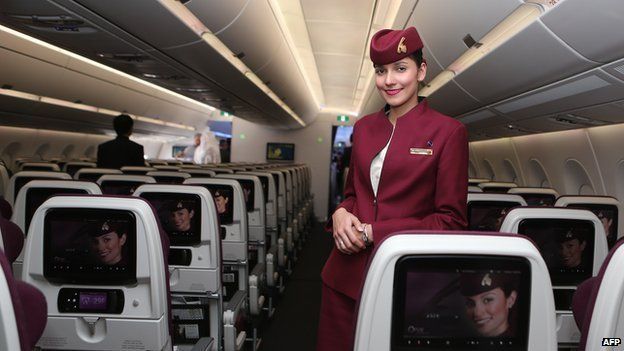Do Pregnant Flight Attendant Works on Plane?- Pregnancy is a unique phase in a woman’s life that requires special attention and care. However, for some professions, including flight attendants, the question arises whether pregnant women should continue to work on planes. This topic has been a matter of debate for many years, with arguments for and against pregnant flight attendants working on planes. In this article, we will examine the different perspectives surrounding this issue.
Firstly, let’s look at the arguments against pregnant flight attendants working on planes. One of the primary concerns is the risk of exposure to radiation. When working at high altitudes, flight attendants are exposed to cosmic radiation, which can potentially harm the unborn child. While the level of radiation exposure is generally considered to be low, it is still a cause for concern, especially for frequent flyers. Additionally, the potential risk of radiation exposure can vary depending on factors such as the length of the flight, altitude, and solar activity.
Another concern is the physical demands of the job. Flight attendants have to stand for long hours, carry heavy bags, and handle emergencies, which can put a strain on the body. Pregnant women may experience fatigue, back pain, and other discomforts, which can make it difficult to perform their duties effectively. Furthermore, there is a risk of physical injuries such as falls, bumps, and bruises, which can be harmful to both the mother and the unborn child.
On the other hand, there are also arguments in favor of pregnant flight attendants working on planes. One of the main arguments is that pregnancy is not a disability, and pregnant women should not be discriminated against in the workplace. Many women continue to work in physically demanding jobs during pregnancy, such as nurses, teachers, and firefighters. Therefore, flight attendants should be given the same opportunity to work if they choose to do so.
Related Article: How to Become Female Flight Attendant
Furthermore, some airlines have policies and guidelines in place to ensure the safety of pregnant flight attendants. For example, some airlines have restrictions on the number of hours that a pregnant flight attendant can work, the length of flights, and the types of duties that they can perform. Additionally, flight attendants can be provided with ergonomic equipment, such as back support belts, to alleviate discomfort and prevent injuries.
Moreover, some flight attendants have reported that working during pregnancy has had positive effects on their mental and emotional well-being. Many flight attendants enjoy their work and find it fulfilling, and continuing to work during pregnancy can help them stay connected to their job and colleagues. Additionally, for some women, the financial security that comes with having a steady income is essential during this period of their lives.
In conclusion, the question of whether pregnant flight attendants should work on planes is a complex one, with no easy answer. While there are legitimate concerns about radiation exposure and physical demands, pregnant flight attendants can be protected through policies and guidelines that ensure their safety. Ultimately, it should be up to each individual flight attendant to decide whether they feel comfortable and safe continuing to work during pregnancy, and they should be given the support and resources they need to make an informed decision.
Related Article: Do SpaceX Flight Attendants Really Massage Passengers?

